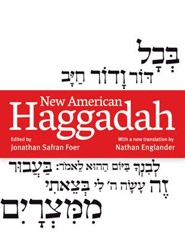Everything about factory farming is illuminated in Foer’s first major work of nonfiction, which attempts to help us make more informed choices about what we eat. Motivated by the question of what to teach his first son about food, Foer set out on a three year journey to learn where the meat on our plate comes from. His findings are startling.
The author feeds us the gory details of the lives of factory-farmed animals. His first hand descriptions are vivid and striking in their gruesomeness. But this book is about much more than the gore that surrounds our meals. Foer explores the environmental impact of factory farming (“animal agriculture…is the number one cause of climate change”), he describes the way in which large-scale health threats are linked to factory farming (H1N1 aka swine flu), he probes into the waste, the humanitarian violations, and the ethical dilemmas surrounding the process by which many of us fill our dinner plates. He also debunks the myth of “free-range” and tells us exactly what is in our chicken…and it’s not just chicken.
Foer is a fiction writer and portions of the book come to life the way his novels do. Beautiful passages describe the social and even ritualistic aspects of sharing meals (Passover seders). He begins the book with a powerful story of his grandmother turning down a piece of pork even while she was starving during the war. “If nothing matters, there’s nothing to save,” she told him. He ends the book with these very words, and the chapters in between tell us what, exactly, we are choosing when we choose to eat certain meats, and why it matters.
Foer uses some of his trademark literary devices in this book — long lists (chapter 3, Words/Meaning), changes in narrative voice (he uses transcripts from his interviews with farmers without indicating who is speaking). These gimmicky devices make for a disjointed and sometimes tiresome reading experience, but they are well-worth the effort. Whatever is said of this book’s style, there is no question that it is a terribly important work — well-researched, heartfelt, and above all filled with facts that anyone who eats should know.
Ada Brunstein is the Head of Reference at a university press.




